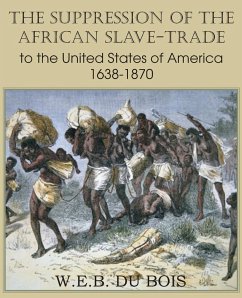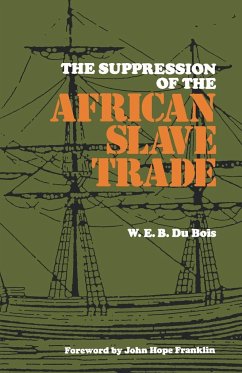
The Suppression of the African Slave-Trade to the United States of America 1638-1870 Volume I
Versandkostenfrei!
Versandfertig in 1-2 Wochen
22,99 €
inkl. MwSt.

PAYBACK Punkte
11 °P sammeln!
The question of the suppression of the slave-trade is so intimately connected with the questions as to its rise, the system of American slavery, and the whole colonial policy of the eighteenth century, that it is difficult to isolate it, and at the same time to avoid superficiality on the one hand, and unscientific narrowness of view on the other. While I could not hope entirely to overcome such a difficulty, I nevertheless trust that I have succeeded in rendering this monograph a small contribution to the scientific study of slavery and the American Negro. I desire to express my obligation to...
The question of the suppression of the slave-trade is so intimately connected with the questions as to its rise, the system of American slavery, and the whole colonial policy of the eighteenth century, that it is difficult to isolate it, and at the same time to avoid superficiality on the one hand, and unscientific narrowness of view on the other. While I could not hope entirely to overcome such a difficulty, I nevertheless trust that I have succeeded in rendering this monograph a small contribution to the scientific study of slavery and the American Negro. I desire to express my obligation to Dr. Albert Bushnell Hart, of Harvard University, at whose suggestion I began this work and by whose kind aid and encouragement I have brought it to a close; also I have to thank the trustees of the John F. Slater Fund, whose appointment made it possible to test the conclusions of this study by the general principles laid down in German universities. W. E. BURGHARDT Du BOIS Wilberforce University












